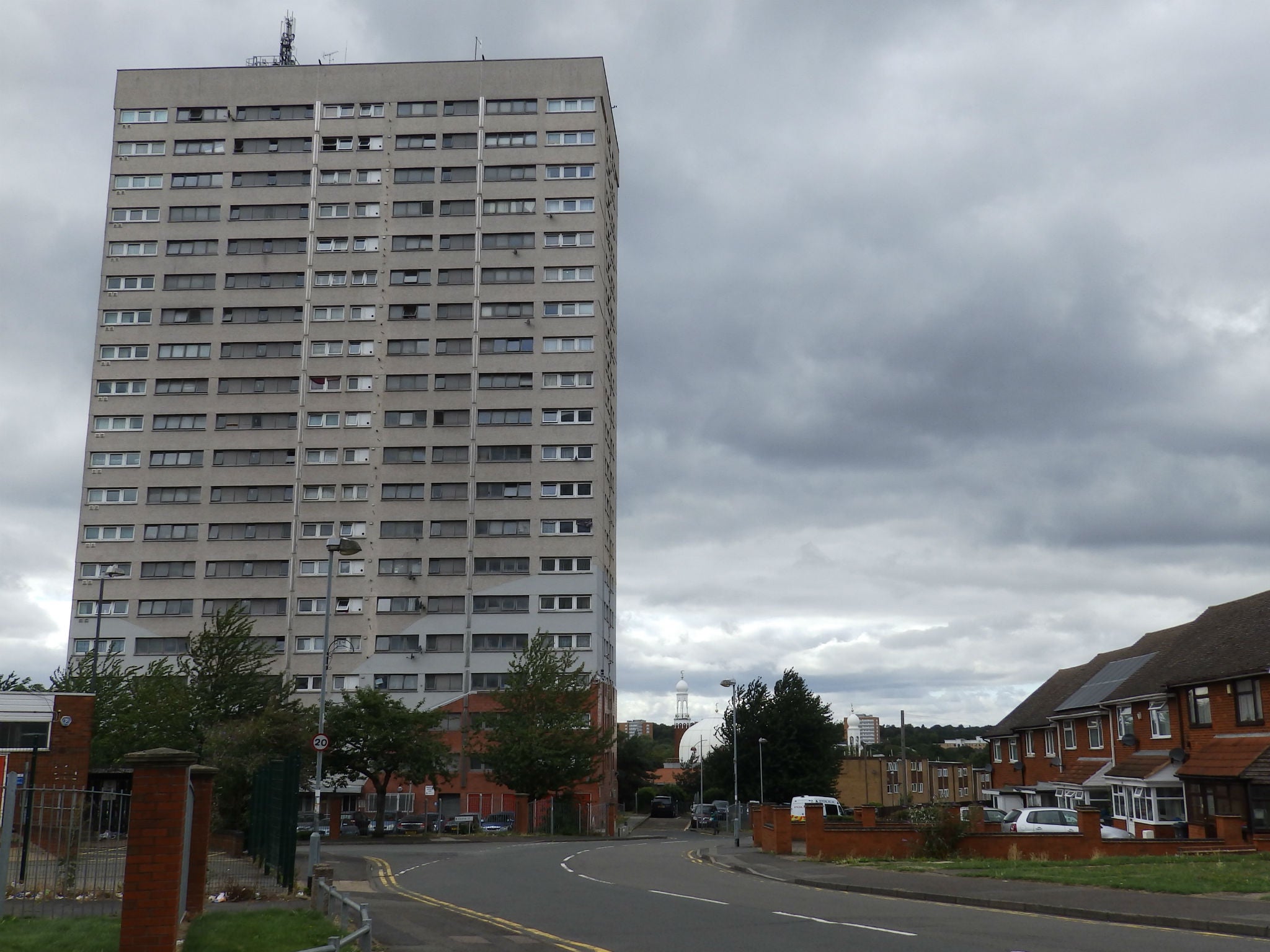Salih Khater: Westminster terror suspect seemed like a 'very good man' but was 'stressed' over father's death, say friends in Birmingham
Friend claims 29-year-old, who was thrown out of university in May, drove to London to get visa because he wanted to visit Sudan

A man accused of launching a terror attack in Westminster may have crashed accidentally while on his way to obtain a visa, friends have claimed.
Police have arrested Salih Khater on suspicion of attempted murder and committing an act of terrorism after he allegedly ploughed his car into cyclists and crashed into barriers outside the Houses of Parliament.
But the 29-year-old’s friends told The Independent he was a “normal guy” who was not radicalised and had been planning to visit family in Sudan.
“He’s a very good man, a very friendly man, everybody knows him,” said one man, who did not want to be named.
“His father died six or seven months ago and that’s why he was stressed.
“In my opinion he was going the wrong way and he didn’t know what he was doing and when he saw the police he got scared – he’s lucky they didn’t shoot him.”
Armed police responded to Tuesday morning’s crash in seconds, after footage showed a silver Ford Fiesta swerving off Parliament Square and hitting cyclists before ploughing into a security barrier outside the Houses of Parliament.
Police officers leapt out of the vehicle’s path and three cyclists and pedestrians were injured, including two who needed hospital treatment.

The crash came during parliament’s summer recess and ahead of the daily rush of tourists to Westminster, leaving the area relatively deserted.
Investigators said the silver Ford Fiesta had been driven from Birmingham to London late on Monday night and was then driven around the city centre for almost eight hours before the crash.
Sudanese community member Ali Mohamed said he understood Mr Khater had an appointment at the Sudanese embassy on Tuesday, which is less than a mile from where the crash took place.
“He was trying to apply for a visa,” he added. “We really don’t know why he got into that incident.”
Mr Khater’s brother, Abdullah Khater, told the BBC he was a “normal person” with no fanatical ideas or links to extremist groups.
His family are “a state of shock” over the incident, he added, saying he had been planning a trip to Sudan.
Nassar Mahmood, a trustee at Birmingham Central Mosque, said Mr Khater did not worship there and enquiries suggested he was not a “fervent” Muslim.
“He had his paperwork with him to go to the Sudanese embassy, and we know that the office opens very early in the morning so probably rather than going very early he went overnight,” he added.
“He was very humble in terms of his finances and may not have wanted to pay for a hotel.”
Mr Mahmood said the terror suspect used his own car and claimed he was “not generally the kind of person we see commit these sort of crimes”, adding: “We’ve been cautioning people against apportioning guilt before the police have concluded their investigation.”
Counterterror officers have completed searches of Mr Khater’s former home above an internet cafe and barber shop in the Sparkbrook area of Birmingham, as well as a second property in the city and a flat where he used to live in Nottingham.
Friends said he moved out of Sparkbrook about four months ago, to a nearby flat in Brinklow Tower, Highgate, Birmingham, where residents recognised his photograph.
Police were seen entering the block with evidence bags and boxes on Wednesday afternoon as they continued work to establish a potential motive for the Westminster incident.
Mr Khater, whose social media indicated a liking for Celine Dion and Rihanna, is believed to have arrived in the UK in 2010 as an asylum seeker. He was granted refugee status and later applied successfully for British citizenship.
He studied English at City College from 2010 to 2011, then a diploma in science at Birmingham’s South and City College from 2014 to 2017, and started an accountancy course at Coventry University.
“Salih Khater studied accountancy at Coventry University between September 2017 and May 2018,” a spokesperson said. “He failed the first year of his course, therefore his enrolment was terminated.”
One friend described Mr Khater as a “simple man”, while some acquaintances said he was “slow” and thought he may have “mental difficulties”.
Mr Khater described himself as a shop manager on his Facebook page, where the “about” section reads: “In past I’m great but now I say I don’t no [sic]”.
He said he studied at Sudan University of Science and Technology and went to school in Wad Madani, a city southeast of Khartoum.
Metropolitan Police assistant commissioner Neil Basu, the head of UK counterterror policing, said the suspect was not known to MI5 or counterterror police.

Investigators have still not established a possible motive, and will be looking for any evidence of political or religious affiliations.
“Given that it appears to have been a deliberate act, the method used and the iconic location, it is being treated as a terrorist incident and the investigation is being led by officers from the Met’s Counter Terrorism Command,” a spokesperson said.
“At the time of the arrest, there was nobody else in the vehicle, which has now been removed from the scene and searched. No weapons have been recovered at this stage.
“At this early stage, there is no intelligence of further danger to Londoners or the rest of the UK in connection with this incident.”
No other arrests have been made in connection with the ongoing investigation.
Police cordons erected amid a large-scale security response to the crash have since been lifted, but uniformed and plain-clothed officers have been deployed in central London under Project Servator.
Officials said they have “specialist skills to recognise telltale signs that someone may be in an area for terrorist or other criminal purposes”.
The car struck metres from where Khalid Masood launched the first terror attack claimed by Isis in Britain, and the metropolitan commissioner is among the officials suggesting parts of Westminster may be pedestrianised.
In the past 17 months, Westminster has been hit by two attacks and was the planned location of four disrupted plots, making it currently the biggest terror target in Britain.
Isis has issued advice to its followers on how to carry out atrocities using vehicles, knives and other easily obtained items, which have made attack plans faster, and harder to spot for authorities.
The prime minister’s spokesperson said 13 Islamist and four far-right plots have been foiled since the first Westminster attack in March 2017 – an average of one a month.
A total of 676 terrorism investigations by MI5 and counterterrorism police were underway by the end of June this year, up from around 500 just four months before.